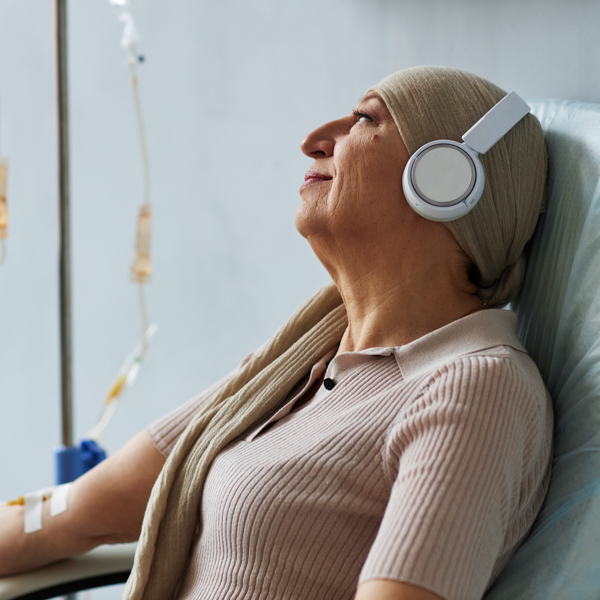If you’ve been diagnosed with bladder cancer, read on for ways to prepare for your first visits with your provider.
Once you hear the word “cancer,” it’s completely understandable to feel overwhelmed.
“Your brain may not hear other words after that,” said Dr. Kristen Scarpato, a urologist with Vanderbilt Urology. Your mind is likely reeling with questions: What stage is my cancer? How will this be treated? How long will I need treatment?
“For the first few initial visits, I advise patients to have more than just their set of ears available to listen,” Scarpato said. “This can be a friend, a family member, a neighbor who’s in the health care industry, or anyone they trust. And they don’t have to come in person — just ask your provider if you can call someone on speaker. It is common to have a family member on speaker during a visit.”
Scarpato also recommends coming with a list of questions — much like the list below — as well as any scans, disks or other records you might have been given by other providers. It’s also helpful to be in touch with your feelings, and to have a clear idea of what you want to get out of the visit. Do you want as much knowledge as possible, or would that overwhelm you? Would you prefer to focus solely on treatment options? Be sure to share those feelings with your provider at the onset.
And lastly, know that you have some time to consider this new information. “Not every decision has to be made on that first day,” Scarpato said. “It’s OK if you need time to process — and it’s OK if you want to get a second opinion. Go home and talk with your loved ones, read the literature we give you, and come back next visit with any additional questions you might have.”
If you’re preparing for your initial appointments for bladder cancer, consider this list of questions a starting point.
Understanding your bladder cancer
- What is the stage and grade of my cancer?
- Has it spread anywhere else in my body?
- What may have caused this?
Deciding on a treatment
- What treatment do you think is best for me? Why?
- How much experience do you have treating bladder cancer like mine? How many patients with bladder cancer do you treat a year?
- What are the goals of my treatment? Are we trying to cure the cancer, slow it down, shrink it or control symptoms it’s causing?
- What’s the success rate of this treatment for my type of bladder cancer?
- What’s the life expectancy for someone with my stage of cancer who gets this treatment?
- How long will I get treatment?
- Can my bladder can be saved or does it need to be removed?
- When do I need to start treatment?
- Will I be able to go to work and be around my family?
- Are there any clinical trials I should look into?
- Will my insurance pay for treatment?
- How long do I have to decide which treatment I’m going to pursue?
Getting ready for treatment
- Should I change my diet? What foods or drinks should I avoid?
- Are there foods I can eat or supplements I can take to help control my cancer?
- How long will each treatment take?
- Where do I have to go for the treatment?
- Who is involved in giving me the treatment?
- Does someone need to go with me to treatments?
- Can I take my other medicines during the treatment period?
Coping during treatment
- What side effects should I watch for?
- How long will side effects last?
- Are there side effects that I need to call you about?
- How do I reach you after hours and on weekends?
- What can I do to ease the side effects?
- How will we know if treatment is working?
- How can my friends and family help me during treatment?
- Are there support groups nearby that I can join?
After bladder cancer treatment
- How will I feel after treatment?
- Do I have to limit what I do?
- What type of follow-up will I need after treatment?
- How will we know if treatment worked?
- What can I do to keep the cancer from coming back?
- What changes should I watch for and tell you about?

Personalized cancer care
Vanderbilt Health’s Urological Cancers team is dedicated to preventing, diagnosing and treating cancers that affect the kidney, bladder, prostate and testicles. The specialized team works together to provide a precise diagnosis and effective treatment options.




